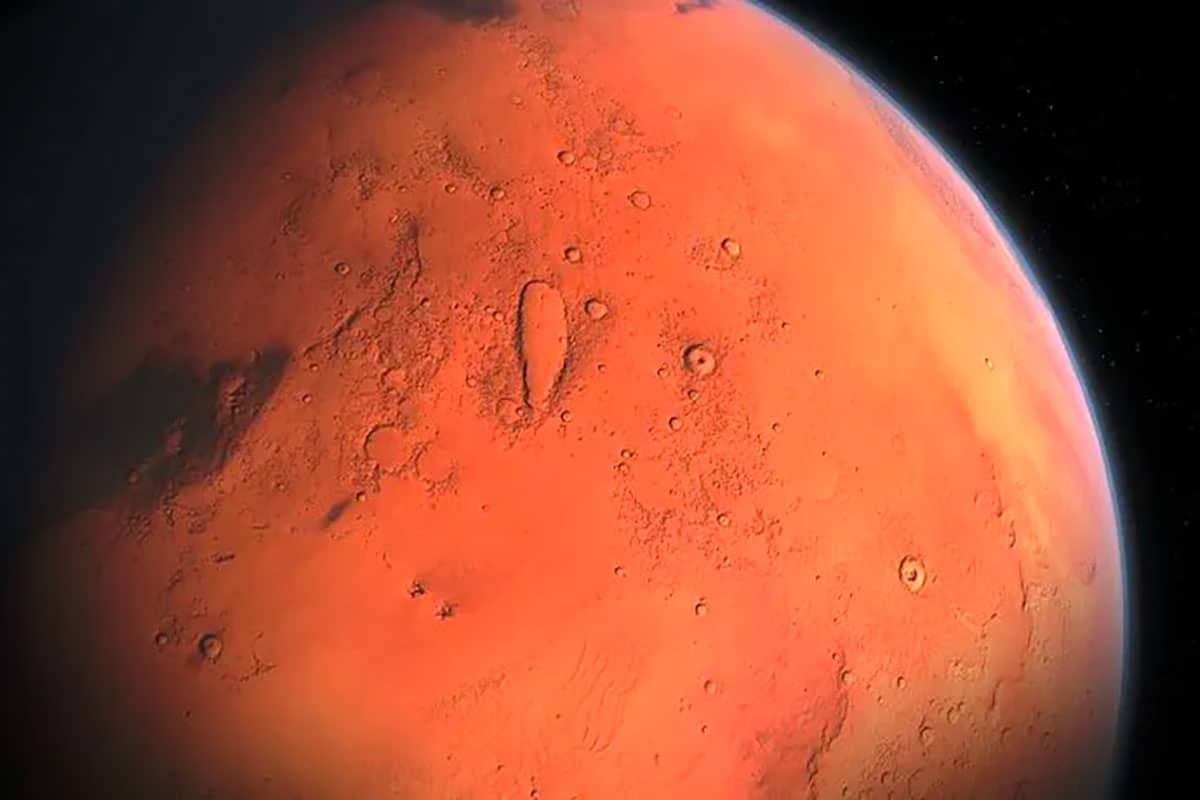
Samir Sebti Published on November 19, 2024
Collected at: https://dailygalaxy.com/2024/11/scientists-uncover-evidence-ancient-water-mars-new-findings-reveal-planets-wet-past/
A team of scientists has recently published groundbreaking findings in the journal Nature, suggesting that Mars was not always the arid, inhospitable world we see today. The study, based on data collected by multiple space missions, provides tantalizing clues about the planet’s wet history.
These missions have collaborated to paint a picture of an ancient Martian landscape dramatically different from the one we observe today. The Mars Once Had a Vast Ocean, New Clues from Zhurong Rover Suggest that the planet’s northern hemisphere once harbored an extensive body of water, challenging our perceptions of Mars’ geological history.
Geological formations tell a watery tale
Since its landing in 2021, the Zhurong rover has been exploring Utopia Planitia, a vast plain in Mars’ northern hemisphere. This region has yielded significant evidence of ancient water presence. The rover’s observations have revealed several key geological features :
- Depressions
- Sedimentary channels
- Mud volcanoes
These formations are typically associated with areas that have experienced the presence of water and ice. The discovery of these features adds weight to the hypothesis that Mars once boasted a substantial aquatic environment.
Perhaps most intriguingly, the data suggests the presence of an ancient shoreline in this area. Researchers estimate that this ocean was formed by flooding events approximately 3.68 billion years ago. This timeframe is particularly interesting as it potentially coincides with a period when Mars had already begun to cool and dry, losing much of its atmosphere.
| Time Period | Event |
|---|---|
| 3.68 billion years ago | Ocean formation |
| 3.42 billion years ago | Ocean disappearance |
Debating the evidence
While these findings provide compelling support for the existence of an ancient Martian ocean, the scientific community remains divided. Bo Wu, the lead author from the Hong Kong Polytechnic University, cautiously states that their results do not definitively prove the ocean’s existence. This measured approach highlights the complexity of interpreting geological data from another planet.
Some scientists, like Benjamin Cardenas from Pennsylvania State University, express skepticism. Cardenas argues that Mars’ powerful winds have likely obliterated any traces of an ancient shoreline. This perspective underscores the challenges in reconstructing Mars’ geological history from current observations.
However, Wu and his team propose an alternative explanation for the preserved evidence. They suggest that the observed features could be rocks excavated more recently by meteorite impacts. This hypothesis attempts to reconcile the presence of shoreline-like formations with the planet’s harsh surface conditions over billions of years.
Implications for martian life
The debate surrounding Mars’ watery past is more than just academic curiosity. It has profound implications for the possibility of ancient life on the Red Planet. Water is considered a crucial ingredient for life as we know it, and the existence of a vast ocean on Mars would significantly increase the chances that the planet once harbored living organisms.
Current and future Mars missions are focusing on :
- Collecting and returning Martian rock samples for detailed analysis
- Identifying potential reservoirs where the ancient ocean’s water might have been stored
- Searching for chemical signatures that could indicate past or present microbial life
These efforts aim to piece together Mars’ complex history and potentially answer one of the most profound questions in planetary science : Did life ever exist beyond Earth ?
As we continue to explore and study Mars, each new discovery brings us closer to understanding its fascinating past. The evidence of ancient water on Mars not only reshapes our view of the planet’s history but also fuels our imagination about the potential for life in the cosmos. While definitive proof of a Martian ocean remains elusive, the ongoing research and debate highlight the dynamic nature of planetary science and the endless wonders of our solar system.

Leave a Reply